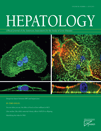Impact of primary biliary cirrhosis on perceived quality of life: The UK-PBC national study†‡§
Potential conflict of interest: nothing to report.
For a list of members of the UK-PBC Consortium, please see the Appendix
Supported in part by the National Institute for Health Research (NIHR) Newcastle Biomedical Research Center based at Newcastle upon Tyne Hospitals NHS Foundation Trust and Newcastle University; Isaac Newton Trust, University of Cambridge PBC Foundation. The views expressed are those of the authors and not necessarily those of the NHS, the NIHR, or Dept. of Health. Further funding was provided by Wellcome Trust & MRC Addenbrooke's Charitable Trust. The PBC Genetics Study is a portfolio study of the NIHR CRN.
Abstract
Primary biliary cirrhosis (PBC) has a complex clinical phenotype, with debate about the extent and specificity of frequently described systemic symptoms such as fatigue. The aim of this study was to use a national patient cohort of 2,353 patients recruited from all clinical centers in the UK to explore the impact of disease on perceived life quality. Clinical data regarding diagnosis, therapy, and biochemical status were collected and have been reported previously. Detailed symptom phenotyping using recognized and validated symptom assessment tools including the PBC-40 was also undertaken and is reported here. Perception of poor quality of life and impaired health status was common in PBC patients (35% and 46%, respectively) and more common than in an age-matched and sex-matched community control group (6% and 15%, P < 0.0001 for both). Fatigue and symptoms of social dysfunction were associated with impaired perceived quality of life using multivariate analysis. Fatigue was the symptom with the greatest impact. Depression was a significant factor, but appeared to be a manifestation of complex symptom burden rather than a primary event. Fatigue had its greatest impact on perceived quality of life when accompanied by symptoms of social dysfunction, suggesting that maintenance of social networks is critical for minimizing the impact of fatigue. Conclusion: The symptom burden in PBC, which is unrelated to disease severity or ursodeoxycholic acid response, is significant and complex and results in significant quality of life deficit. The complexity of symptom burden, and its lack of relation to disease severity and treatment response, suggest that specific approaches to symptom management are warranted that address both symptom biology and social impact. (Hepatology 2013;58:-)




